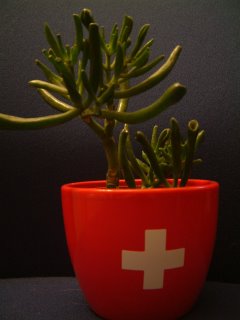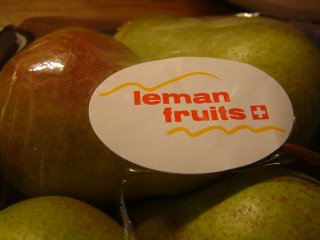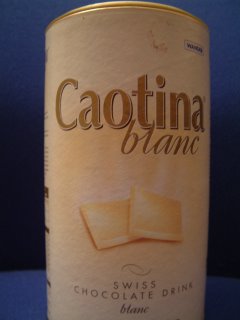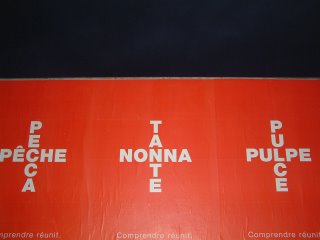To cross or not to cross, in Switzerland
 “I am about to become Swiss.”
“I am about to become Swiss.”
I quote myself. I wrote this sentence to see what it looks and feels like, since the reality is having trouble planting itself in my head. The sentence looks efficient, compact and not too big, all of which are Swiss traits. It feels, to its owner, strange and foreign. The last time I felt like this was 10 minutes before I was married.
Wednesday night my name and those of my British husband and dual nationality children were presented to the Swiss commune of Saint-Prex as applicants for the “bourgeoisie”. In other words, we are applying to become citizens of our village, and if the village votes yes on December 7, we will become Swiss. Saint-Prex is a pretty town, population 5,000. It sits on the edge of Lake Geneva. Next month, if the vote says we are accepted, we will share white wine from the Chasselas vineyards where I take my daily walk. We will grow convivial around the raclette plates. Raclette is a national dish of melted cheese over boiled potatoes. It symbolizes how a nation can have four national languages plus any number of others brought in by the nearly 25% of the population that is not Swiss, and still sit around the table together. How can I ever become Swiss when I am so American? I still get a shiver when I see a stack of dollar bills. Lest you think I am mercenary I get the same thrill when I see the stars and stripes snap in the wind. I keep looking at the Swiss white cross on a red field and wondering how I really feel about it.
How can I ever become Swiss when I am so American? I still get a shiver when I see a stack of dollar bills. Lest you think I am mercenary I get the same thrill when I see the stars and stripes snap in the wind. I keep looking at the Swiss white cross on a red field and wondering how I really feel about it.
I grapple with the possibility that acquiring a new citizenship can never be more than a new pile of papers, added to the others to be filed on my desk. Can anyone truly be something other than what he or she already is, was born into?
One school of thought says, well, maybe. It allows us to keep trying for the lover or job or dream or even country that destiny does not seem, ultimately, to have assigned us. If I were more this or that, then it would all work out.
There is a large school of thought, with some intellectuals for professors and a lot of reactionaries for students, which argues that we cannot change. Once an Arab, always an Arab, once Chinese, always Chinese.
The failing here is that it’s us guys saying you guys can’t come in: you can never be like us. But what happens when we walk around the table and become the you guys. All of a sudden I find myself saying that us guys don’t think we can be like you, nor do we want to be—but we think you should let us in anyway. Immigrant talk.
If I’m Algerian and young and jobless, living in a crumbling gray block outside Paris, I might start burning cars, or I might go to the mosque as I always do and try to forget that the face torching the rag hanging out of the car’s gas tank is one I knew in primary school. If I’m Croatian and living down the road from the Algerian I might tell my friends we can do even better, burn more cars. Or I might keep showing up for work as a gardener at the house of the old lady where my wife does the ironing, her third job and my second, and that doesn’t count taking care of the children whose future we are determined to secure.
Those are the stereotypes of the passport-seeker: the bad and the good, both initially seen as inconvenient, to those citizens born to the flag. We passport-seekers are the people who have forced European countries to rethink laws about who can be a citizen and how to integrate new ones. The results have been spotty. Hong Kong residents who thought they were part of the British Empire , then told “no”, now find themselves getting around the notion of being Canadian, even if they live in the middle of Europe. These are not displaced persons but holders of misplaced national allegiance.
In the United States we, the new people, have turned the Great American Novel on its head in the past 20 years.
But I’m not any of these. In practical terms I have a perfectly useful passport for most parts of the world. I can get in and out of the US easily, my tax situation won’t improve by being Swiss and if I wanted a numbered bank account I could have had one years ago (but no one does). I can and do eat chocolate and fondue and raclette.

Passport seekers make a quiet shift, not of allegiance, but of affection. They don’t give up anything, they buy into more. They give more, in the end. I pledge affection to…
In Iowa, in 1956, I stood beside my wooden desk, fashionably pale with the seat attached on one side, proud of being big enough to do this. My little voice piped, along with the others, the Catholic version of the prayer we called the “Our Father” right after we’d faced the flag at the front of the room and pledged allegiance to it. Such pride! Such pleasure in being a part of good things.
The world is larger than I thought back then, when Boston was on a distant shore and San Francisco not yet heard of. I have learned that families can grow and you can still love the first one, as well as have a new one. I learned to adopt in-laws who are British and live around the world, from Asia to Africa to England’s Kent. I can still love America, can criticize it sharply but become defensive when others do so without understanding the wondrousness of the place. And I can love Switzerland, too. I now have a stockpile of memories, of daily visual treasures and encounters that help my affection for her to grow. Most are positive, a few are not. I can say I know my rights and responsibilities as a citizen, and I look forward to joining the neighbors next month to vote on giving people the right to work on Sunday. I worry like everyone else what will happen if all communes vote to replace one of the foreign but national languages with English, for economic reasons. I read the billboards with words in other national languages, and agree with their message that if we keep trying to understand each other, we will be able to live together peacefully. I like Swiss neutrality, and not just because I didn't back Bush on Iraq.
And I can love Switzerland, too. I now have a stockpile of memories, of daily visual treasures and encounters that help my affection for her to grow. Most are positive, a few are not. I can say I know my rights and responsibilities as a citizen, and I look forward to joining the neighbors next month to vote on giving people the right to work on Sunday. I worry like everyone else what will happen if all communes vote to replace one of the foreign but national languages with English, for economic reasons. I read the billboards with words in other national languages, and agree with their message that if we keep trying to understand each other, we will be able to live together peacefully. I like Swiss neutrality, and not just because I didn't back Bush on Iraq.
I step into the street in the morning and think, “This place is mine, now.” In a perverse twist, I think that might be what happens at night on the streets of France, to those who haven't had a sense of ownership until now.
Move over, I want to tell the neighbors. After all, we've grown fond of your raclette.
Make a little space at the table for us.



0 Comments:
Post a Comment
<< Home